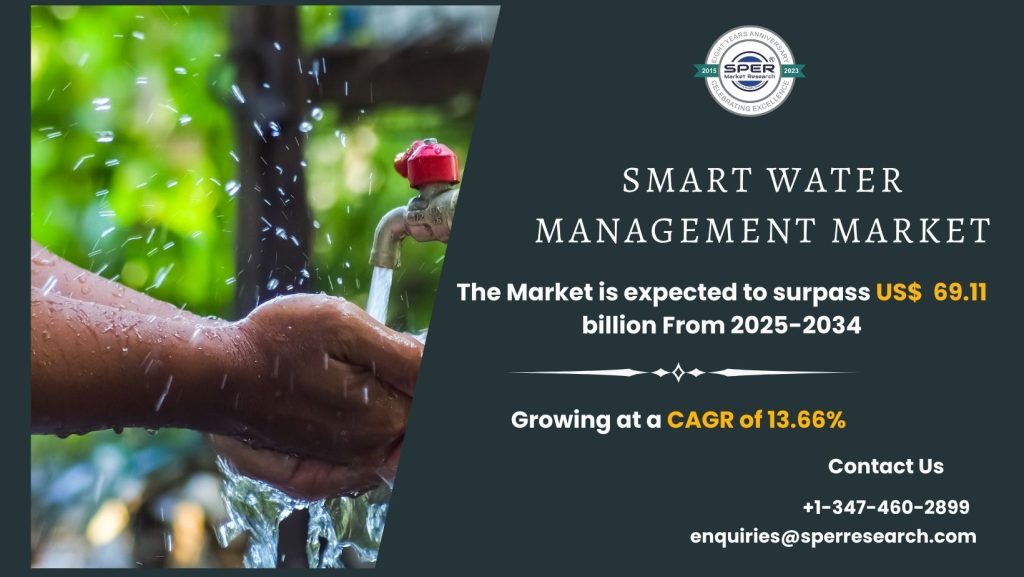Smart water management integrates cutting-edge technologies such as artificial intelligence (AI), Internet of Things (IoT), and big data analytics to enhance the efficiency of water distribution, conservation, and treatment. By utilizing real-time monitoring, predictive analytics, and automated leak detection, smart water solutions help governments, industries, and households optimize resource use while reducing waste. The integration of smart sensors, cloud computing, and AI-powered forecasting allows for proactive decision-making and improved infrastructure resilience. As climate change and urbanization place growing pressure on water resources, smart water management systems are becoming essential for ensuring sustainable and cost-effective water use, supporting environmental conservation efforts, and enhancing the reliability of water supply networks.
According to SPER Market Research, ‘Global Smart Water Management Market Size – By Offering, By End Use- Regional Outlook, Competitive Strategies and Segment Forecast to 2034’ state that the Global Smart Water Management Market is predicted to reach 69.11 billion by 2034 with a CAGR of 13.66%.
Drivers:
The increasing global water crisis and the need for efficient resource utilization are major drivers of the smart water management market. Government regulations promoting water conservation and pollution control are accelerating the adoption of smart technologies such as IoT-enabled smart meters and AI-driven analytics. The expansion of smart city initiatives worldwide is also fueling demand, as digital infrastructure improves urban water distribution and wastewater treatment. Additionally, advancements in cloud computing and 5G connectivity are enabling real-time data collection and predictive maintenance, reducing system failures and water loss. The rising awareness of sustainability and corporate social responsibility (CSR) is further encouraging industries and municipalities to invest in smart water solutions to enhance efficiency and meet environmental goals.
Request a Free Sample Report: https://www.sperresearch.com/report-store/smart-water-management-market?sample=1
Restraints:
Smart water management has many benefits, but it also has drawbacks, such as expensive initial investment and intricate system integration. Many areas continue to use antiquated water infrastructure, which makes putting smart ideas into practice challenging and costly. Because smart water systems depend on IoT and cloud-based networks that are susceptible to cyberattacks, data security and privacy issues also present risks. Adoption may also be slowed by utility operators’ and legislators’ lack of technical knowledge and awareness. Deployment is made more difficult by regional regulatory differences, necessitating customized solutions that adhere to regional water management guidelines. To overcome these obstacles and guarantee the effective deployment of smart water technology, significant investments in workforce development, infrastructure modernization, and strong cybersecurity are needed.
The Global Smart Water Management Market is dominated by North America due to its advanced technological infrastructure, strong regulatory framework, and high adoption of smart water solutions. The United States and Canada have implemented stringent water conservation policies, encouraging the deployment of IoT-based water monitoring systems and smart metering technologies. Some of its key players are – ABB, Honeywell International, IBM, Itron, Landis+Gyr.
For More Information, refer to below link: –
Related Reports:
Follow Us –
LinkedIn | Instagram | Facebook | Twitter
Contact Us:
Sara Lopes, Business Consultant — USA
SPER Market Research
enquiries@sperresearch.com
+1–347–460–2899



